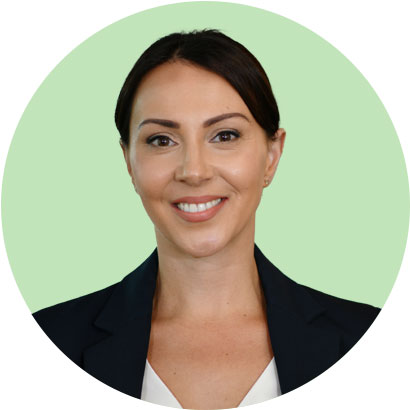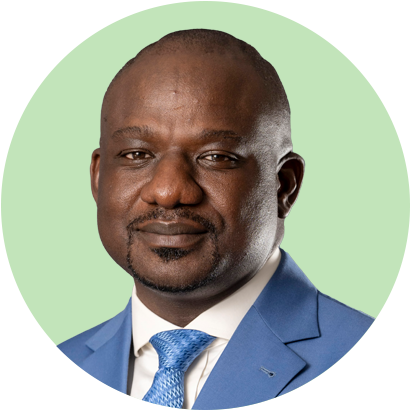ICHOM had the chance to sit down with Rhino Health for an exclusive interview we’re pleased to share. Continue reading to hear what we discussed with Chris Laws, Chief Operating Officer.
Can you give us a brief introduction to Rhino Health and what you do?
A: Rhino Health helps to activate the world’s health data. We streamline the process of building data analytics and AI/ML development and deployment at health networks around the world without requiring data sharing. Our software, the Rhino Federated Computing Platform (Rhino FCP) enables that by prioritizing data privacy and security.
Using Edge Computing and Federated Learning (the combination of which we call ‘Federated Computing’), we bring the computation power needed to conduct analysis and extract insights directly to the data instead of requiring data to be centralized. Rhino FCP empowers researchers, data scientists, and engineers to make progress in areas such as drug discovery, disease prediction, public health surveillance, and responsible AI development.
I am the Chief Operating Officer, and so I lead several parts of the company including strategic partner relationship management, project leadership, financial operations, compliance and more. In our business, and as a global company, compliance, privacy and regulatory affairs are hallmark to what we do, and so that takes up a substantial part of my focus.
Q: What is Rhino Health’s expertise in helping clients with Value-Based Care?
A: Federated Computing can be hugely impactful for VBHC, as it can integrate data from multiple stakeholders and enable actionable insights, without requiring the different stakeholders to bear unreasonable risks or fear that their data may be used for unintended purposes. Rhino FCP enables many efforts that underlie VBHC – quality measure development and implementation, testing the validity and efficacy of AI models on diverse patient populations, and developing & deploying early detection as well as precision diagnostic models. Overall, Federated Computing offers a way to leverage the power of healthcare data while respecting patient privacy. This can lead to better, more efficient, and ultimately more cost-effective healthcare delivery, which is a core principle of value-based care.
Q: What do you see as the biggest challenges – and opportunities – in expanding the network of healthcare providers using VBHC models?
A: My perspective of challenges & opportunities for VBHC is influenced by two experiences. The first experience is as a consumer of the American healthcare system. There are many, thoughtful analyses about the challenges of VBHC in America that I don’t need to rehash for ICHOM’s community. The second, more novel for this audience, experience is as the COO of a software company. From this vantage, I see the interoperability challenges of our partners firsthand, along with the desire to collaborate while also respecting privacy laws resulting in often-stalled data collaboration projects – with delays stemming from inability to find partners, inability to overcome compliance hurdles, lack of data engineering resources, and more.
The existence of Rhino Health is representative of the opportunity that technology is now affording us to expand the usage of VBHC models. Rhino is trying to break down the above barriers with our software. Our Harmonization Copilot combines Generative AI with a ‘human in the loop’ to efficiently create and maintain high-quality, standardized, machine-readable data – lowering the barrier for sites to collaborate with one another. On top of that, Federated Computing allows our partners to activate their data without transferring, providing an alternative to the current ‘data centralization’ paradigm. Ultimately, Federated Computing should result in an acceleration of healthcare & life sciences AI application development & adoption, as more models can be developed, more responsibly.
Q: What message do you have for our different audiences (e.g., providers, regulators, payers, patient organizations etc.) about how they can support the transformation to an outcomes-based healthcare system?
A: “When you have a hammer, everything looks like a nail.” When you have a Federated Computing Platform, everything looks like a problem that can be solved by ensuring that data are ‘AI ready’, easily explored by the global community, and accessible to a variety of analyses or development projects. The challenge for many leaders is the huge variety of solutions available to them, all of whom are well-intended, and many of whom do have some value, but all with an opportunity cost of time & resources. Given this overabundance of AI solutions coming to market and the rapid democratization of development through Generative AI, lower compute costs, and no code tools; I would advocate for investing in infrastructure to create a ‘responsible AI/data sandbox’ for innovation and then letting ‘1000 flowers bloom’ at the level of individual lab or physician.
Q: Can you share any examples where you’ve helped clients successfully adopt VBHC models?
A: We are supporting professional societies in the US, who often take roles that may be done by HTA in Europe, to evaluate new AI products for efficacy and accuracy. While the regulatory framework for Software as a Medical Device is evolving, there remains a need for ensuring that AI retains its safety and efficacy during the entire lifecycle of the product use. That, in turn, ensures that only performant AI is used and that AI drives high-value care rather than lower value care – and does so without bias. There are already many examples of AI models working inconsistently across patient populations [link 1, link 2, link 3]. AI safety testing will pave the road for VBHC models that involve AI products.
Additionally, Rhino FCP provides its customers with a generative-AI powered Harmonization Copilot, that enables turning clinical data into a Common Data Model, with machine-readability that makes longitudinal patient journeys and outcome analysis possible. This is already used by hospitals and health networks to enable interoperability and public health interventions aimed towards ensuring value based care. It also has a unique advantage of using federated learning for training the generative AI model across a network, thus ensuring that the data is not just harmonized for one hospital but harmonized across multiple hospitals. The fact that the data remains with the data custodian, enables not only analysis, but also iterative-analysis as the corpus of data can be expanded and extended.
We are bringing these capabilities, as well as others, into the ICHOM-led “Learning Collaborative” for Breast Cancer therapy. We are the computing platform serving this collaboration, and we believe it will be a game-changer in terms of not only measuring the value of care, but turning that measurement into actionable insights in rapid-cycle..
Q: Now, crystal ball time: how do you think the healthcare part of your business will look ten years from now – and what role will VBHC models play within it?
A: Our vision is that every hospital, government agency, professional society, insurer, life sciences company, commercial model developer, and beyond are tapped into a federated network that protects data privacy & sovereignty to ensure that humanity benefits from the incredible potential AI and data analytics have to offer. This type of connectivity will create more transparency in outcomes for every sector of healthcare & life sciences, driving a virtuous cycle of improvement by highlighting & rewarding optimal care pathways, development of more effective new therapies, and more proactively identifying risks to public health. More concretely, we will solve for the paucity of outcome data that is available for analysis, together with visionary partners such as ICHOM. We will ensure that insights from Learning Collaboratives can be disseminated and inform policy, shifting from process-oriented into value-oriented. Lastly, we will continue supporting the deployment of new measures and metrics that will translate the aforementioned policies into action by healthcare organizations and payors.




































